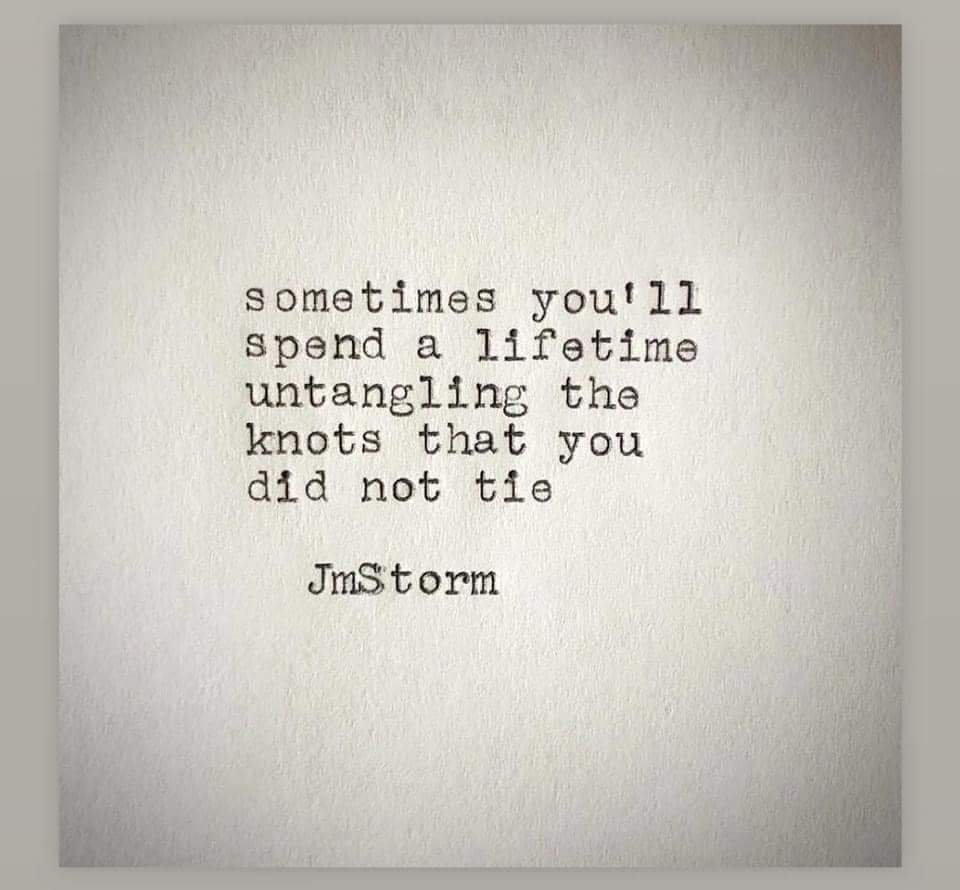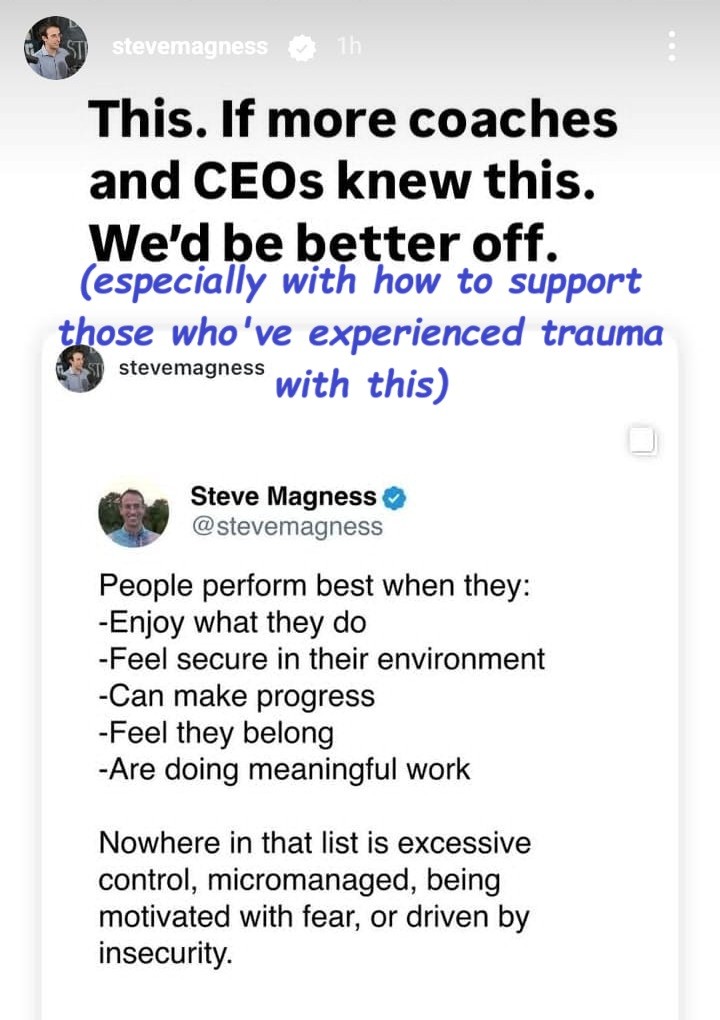Part 2:

It’s personal.
When I was a youth playing sports (admittedly a few centuries ago 🤣 ) there were many missed opportunities that could’ve stopped my life going the direction it went, sport and animals were my escape.
By the time I got to uni I joined a few sports groups but remember not feeling I fit in, and extremely anxious and it became much easier, and felt safer, to drink and party than to play sport. But sport could’ve done the opposite – helped me trust people and feel I belong, and that alone would’ve prevented things going downhill fast, for years. I would never have accessed therapy or asked for help at that point but I now know how much more powerful sport would’ve been to help me heal.
I’m under no illusions I would’ve played any sport at a high level 🤣 but there are plenty of kids out there that could, with the right approach.
Of course they were different times. Coaches had little awareness of trauma or how to support people, we know better now, and can do better now. 🙏
And yes, my experience taught me & brought me to here, but honestly – I would still rather it didn’t happen. But I am driven by learning how we can remove barriers and create more, and better, opportunities to help people heal.
Part 3:

It makes everything easier, including safeguarding and improving performance 🥳
TISC is not just to be used on ‘those people’ who have trauma, or learning how to support someone who’s experienced trauma, or safeguard people from abuse, or even just giving people something healthy to do. It has the potential to do so much more.
People perform better when they feel psychologically safe, whether in sport or business, or anything. Being TI helps you understand what that can mean in practise as it takes more than just being a good person, especially for the many who have experienced trauma.
And we can do that while using TI learning to adapt our session plans so they flow in a way that can help people start to recover from trauma, without the fear and struggle of talking about it.
This also helps with safeguarding – creating a psychologically safe environment protects people from abuse and enables them to reach out if they need; it’s not for others to have the courage to trust us & talk – it’s for us to prove we are trustworthy so they can.
And sadly many have no reason to trust anyone.
I’ve seen these benefits, but like sport – it takes learning & practise, and we can always improve.